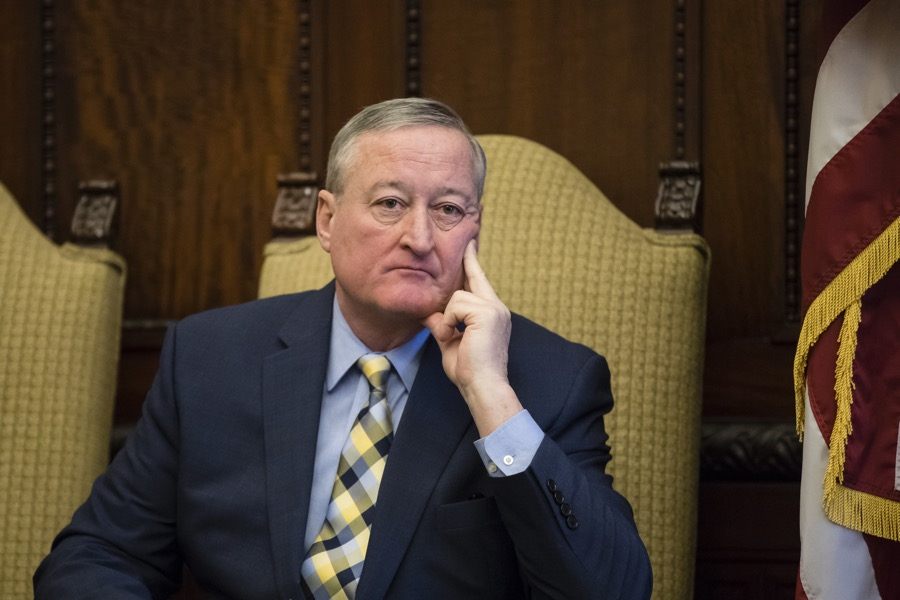No Joke: Kenney Thinks “Overqualified” Black People Are Cause of City’s Diversity Woes
The mayor seems to lack a sincere understanding of how to address the racial disparities that have hovered over his administration since the beginning.

Photo by Matt Rourke/AP.
At a meeting of the African American Chamber of Commerce on Wednesday afternoon, Mayor Jim Kenney had his “I can see Russia from my house” moment.
In a room full of Black business owners, contractors, and city employees, Kenney told us what white men in power have said forever — except this time, he had his very own twist.
Just before the meeting, city controller Rebecca Rhynhart’s office had released a report on diversity among city-hired workers. When I asked why it showed that 48.2 percent of the exempt workforce in departments under the mayor’s authority is white — a significant overrepresentation in a city that as a whole is 66 percent non-white — Kenney gave me a jaw-dropping response:
“We have a hard time hiring Black people for these jobs because they’re so super-talented and too overqualified that they choose to run after the private sector instead. They don’t want to take the pay cut.”
Kenney then bragged about city solicitor Marcel Pratt (one of only four people of color in Kenney’s 14-member cabinet), saying how “lucky” the city is to have “gotten” him and how “surprised” he was that Pratt “would choose to take a job for the city given how super-talented he is.”
Shocked, I followed up by asking Kenney: “So what you are telling me is that Black people aren’t applying for these positions because they are ‘too overqualified’ — to the point that you have to hire more white people instead?”
The room got silent, and Kenney got red in the face.
“What positions? What are you talking about?” he spat back. “I don’t understand what point you’re trying to make.”
As the moderator jumped in to try to cut the conversation short, city commerce director Harold Epps (another one of four people of color in Kenney’s cabinet) tried to save his boss.
Epps blamed “attrition” for the city’s diversity hiring issues, claiming that as they “make more diverse hires, we lose some older ones at the same time,” which he argued “impacts numbers.” I bet a third-grader could guess that making even more diverse hires would easily resolve this issue. But I think everyone, including Epps himself, sensed that the damage had already been done — and it wasn’t even an answer to the question I had asked Kenney.
Right after Epps spoke, Kenney exited without giving final remarks to a room full of Black business people — and voters — who were left with more questions than answers.
In a nutshell, Kenney pretty much did what every white leader who’s put on the spot about diversity shortcomings does: put the onus on people of color instead of on the racial discrimination, nepotism, cronyism, and institutional bias that hold them back. The classic response is “We can’t find [insert underrepresented group] who are interested/have the experience” — Kenney’s twist was to sugarcoat the scapegoat.
According to the mayor, we shouldn’t blame his administration for its lackluster record on diversity hires — it’s that “overqualified” and “super-talented” Black people don’t want to take a pay cut in order to work in the public sector. What’s even more infuriating is that Kenney truly thought he was giving a compliment when he was essentially doubling-down on a racist stereotype that suggests that minorities are money-driven hustlers who value getting paid over public service.
You would think that after nearly four years of having a team that’s mostly white (despite relying on a huge Black coalition to get elected), Kenney would have caught on to what he needs to do. But instead, we are just getting repackaged excuses. In a city that’s a majority of color, I know plenty of “overqualified” and “super-talented” Black and brown people who are applying for these city jobs and more than ready to serve.
For starters, Kenney can take a look at one example currently challenging him for public office.


